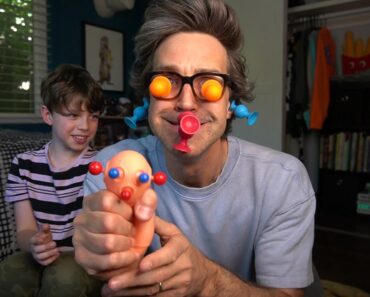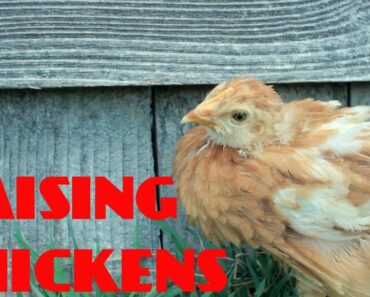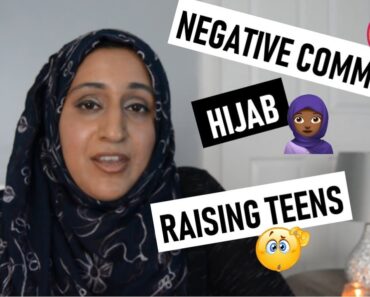image: Shutterstock
As per data by WHO, an estimated 38.2 million children under the age of five years were overweight or obese in 2019, and more than 340 million children and adolescents aged 5-19 were overweight or obese in 2016 (1). Maintaining a healthy weight is crucial for children as it is for teens and adults.
Being overweight or obese can expose a child to several long-term health issues and affect their overall quality of life. If your child isn’t losing weight despite all your efforts, you might want to know a few tips on how to help kids lose weight.
Read on as we give you insight into some common weight loss mistakes you might be making and the effective ways to help your child lose weight.
Common Weight Loss Mistakes
Weight loss isn’t only about eating veggies and fruits or doing exercise. Parents need to understand that weight loss is a continuous process. Identifying your shortcomings and making relevant changes continue until you achieve results.
Here are some common weight-loss mistakes that might be hindering your child’s weight loss efforts.
1. Setting unrealistic goals
Weight loss plans are effective only when you set your goals right. For instance, before you chart out the number of pounds your child needs to lose, aim to control their weight gain. Take small steps and remember that every step counts.
2. Looking for instant weight loss
Quick weight loss is luring, but it isn’t healthy. Several parents wish to do everything possible at once to help their children lose weight instantly. You may, too, lay down several new rules to eat, sleep, and exercise and even put several restrictions on your child. But remember, it can backfire.
Making many changes to a child’s diet or eating habits and overall living pattern at once can make their weight loss journey overwhelming and exhausting. In the long run, this will demotivate your children.
3. Practicing erratic eating patterns
Some children and teens skip meals, indulge in undereating, or follow restrictive eating patterns to lose weight. These might cause weight loss, but they can also slow down the metabolism and pose the risk of nutritional deficiencies in the long run. Besides, once the child or teen begins eating normally, their weight rebounds, making all the previous efforts futile.
4. Following an uncustomized diet
A weight-loss diet must take the age, health, and specific needs of an individual into account. Several children and teens often follow random diet plans that they see on the Internet. Since these diets may not sync with one’s dietary needs, they can do more harm than good.
5. Avoiding physical activity
Children aged six to 17 require 60 minutes of moderate-to-vigorous-intensity physical activity every day (2). If they spend hours on their gadgets and spend little time outdoors, no matter what the weight loss program, it will not yield results. Indulging in regular physical activity and eating healthy help in effective weight loss.
6. Dwindling motivation
Children need positive encouragement to keep their weight loss journey going. There would be instances when the child may lose interest or feel demotivated. You need to back your child. Motivate and educate them about the importance of persevering and reward them accordingly. Your family could also follow a common diet and exercise routine to set the right example for your child.
Besides these, there can be some more mistakes that you may be making while executing a weight loss plan for your child. Identifying them and making relevant changes can help attain desired results.
Tips To Help Your Child Lose Weight
Maintaining a balance between energy intake (food) and energy spent (physical activity) is essential for effective weight loss. Try the following tips to help your child lose weight.
1. Set realistic short- and long-term goals
Consult your child’s pediatrician to decide the overall weight loss your child needs and the timeline at which it can be achieved. Factor in both short-term goals and long-term goals. For instance, the short-term goal could be to cease weight gain within 15 days or a month. This goal should then take you to your child’s long-term goal of losing about 10kg in four to five months.
2. Start small and progress gradually towards the goal
You may wish to try many things at once, but this may overwhelm your child. Pick one area a week and work around achieving it. For instance, for a week, you can guide and help your child replace all sweetened drinks or beverages, such as juice or soda, with low-fat dairy items, such as buttermilk.
3. Personalize your child’s diet
Feed your children well-balanced meals that include a variety of foods. Children and teens need two to four cup equivalent of veggies, two to two and a half cup equivalent of fruits, six to ten cup equivalent of grains, and three cup equivalent of dairy foods per week, depending on their total calorie intake (3).
4. Ensure your child doesn’t skip their breakfast
Breakfast is the first meal of the day that gives your child energy and nutrients to carry out their body functions until they eat their next meal in the afternoon. Yet, data suggest that almost eight to 12 percent of all school-aged children skip breakfast (4). Skipping meals not only leads to nutritional inadequacy, but also slows down one’s metabolism (5).
5. Keep healthy snacks and foods accessible
Keep junk and unhealthy food away from your child’s easy access and replace them with healthier options. Doing so eliminates the chances of eating unhealthy foods when the child is hungry, and it can gradually condition them to make the right dietary choices.
6. Customize their activities as per their needs and interests
Every child is unique, and so is their liking for an activity. Some children may like to run, while others may like to swim or play football. Understand your child’s interests and plan their weight loss activities accordingly.
7. Abstain from following a fad or calorie-restricted diet
Unless your pediatrician or the dietician asks you to, do not let your child follow a fad or calorie-restricted diet. Such diets are nutritionally imbalanced, posing a risk of nutrient insufficiency. Besides, they can slow down a child’s metabolism, making weight loss even more difficult. Weight loss is necessary but not at the expense of nutritional inadequacy.
8. Never use weight loss supplements or pills for children
Never use weight loss supplements or pills for children, even if their weight loss is very slow or they aren’t losing weight. The safety and efficacy of weight loss pills and supplements for children are unknown. Besides, they can have long-term adverse effects that can hamper a child’s overall development.
9. Maintain a record of their dietary changes and physical activity
Keep a diary and record the overall efforts they are putting in to lose weight. Share this record with their pediatrician and discuss the areas of improvement. Doing so can help you identify the shortcomings and rectify them promptly.
10. Be supportive of your child
Understand your child’s weight loss woes and offer reassurance that you have their back. Every child faces different weight loss issues. Listen to your child and help them attain their goal.
11. Set the right example
As a family, follow a healthy diet and an active lifestyle, as children learn from their elders. So, practice what you preach, and follow a diet that you would want your child to follow. It applies to your actions at home and outside. For instance, you could order healthy food while eating out in a restaurant.
12. Seek professional help or guidance from experts
Seek the help of a registered dietician or a weight loss coach. They will plan a customized weight loss program for your child as per their age and overall health. Besides, they will offer counseling and motivation that a child would need to understand their condition and act committedly.
If your child isn’t losing weight despite all your efforts, consult a pediatrician to rule out an underlying health concern. Hypothyroidism and Cushing’s syndrome are chronic diseases where losing weight is difficult due to slow metabolism.
Maintaining a healthy weight is crucial for children. You and your child can work together towards achieving their weight loss goals with diligence and perseverance. While every weight loss journey has its hiccups, you and your child can overcome these hassles with careful identification of the mistakes you might be making.


































